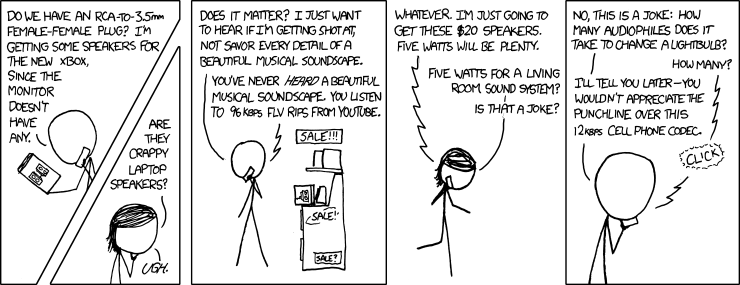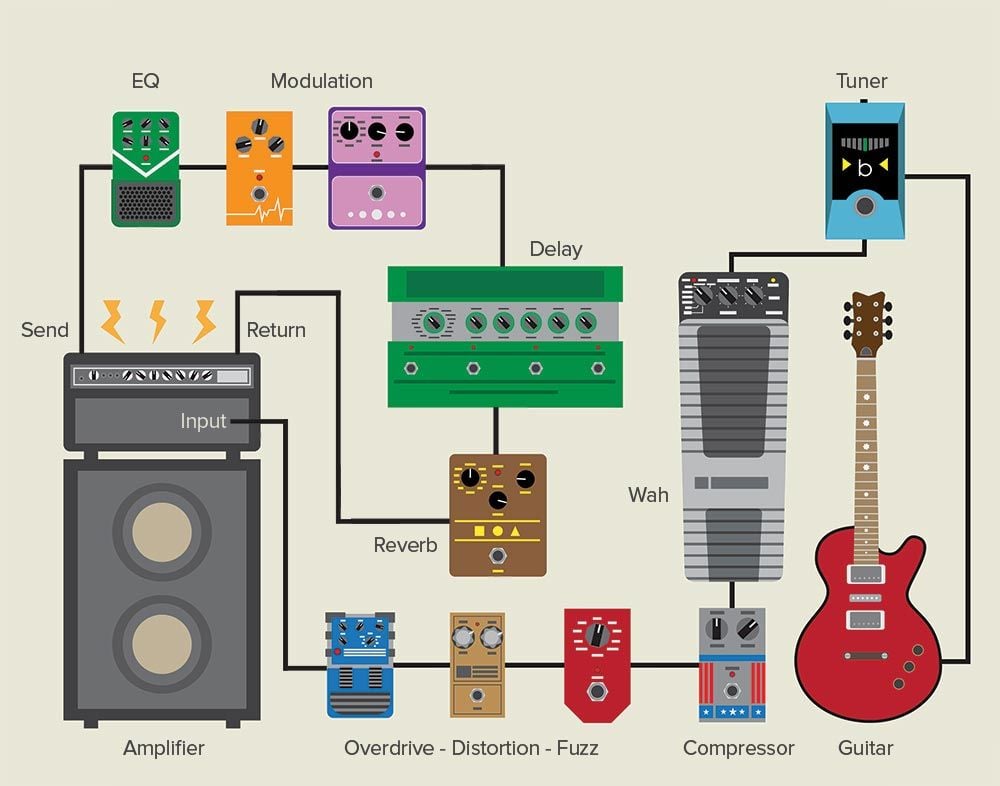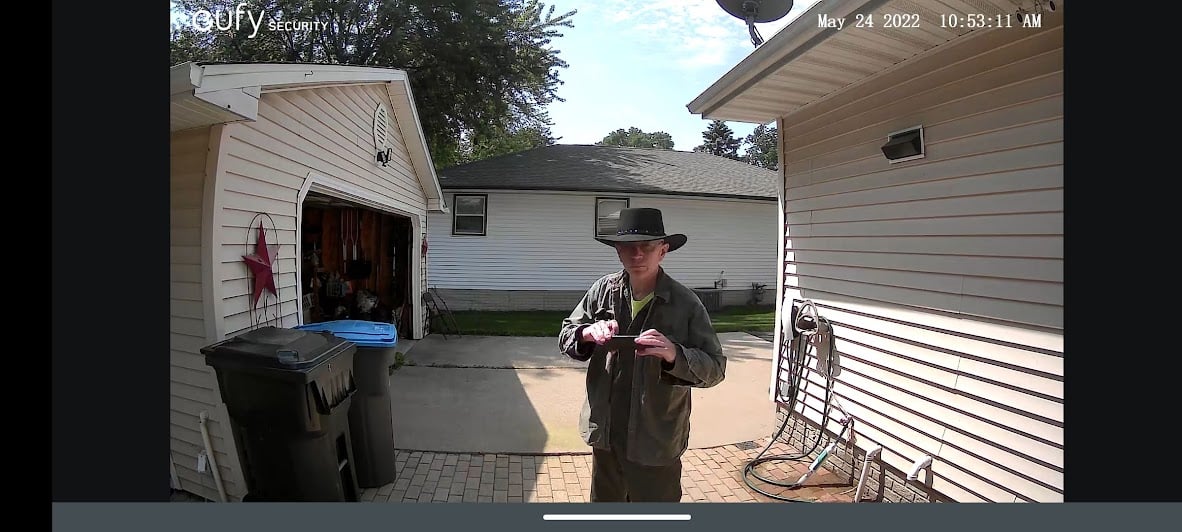- cross-posted to:
- redneckengineering@lemmy.ohaa.xyz
- cross-posted to:
- redneckengineering@lemmy.ohaa.xyz
Relevant xkcd alt-text 841.
For years, I took the wrong lesson from that Monster Cable experiment and only listened to my music through alligator-clipped coat hangers.
Here’s the comic

I have a feeling that would pick up noise
Nah stop with that audiophile snake oil non-sense
If the connections are solid it wouldn’t pick up any more noise than a 6.5mm to RCA adaptor would have. Any jiggle to the cable would result in popping or cracking though, depending on the configuration could be quite jarring.
I think it does act like an antenna a little, so some noise is to be expected. Might be easy to attenuate that band though.
Well every conductor is an antenna in theory, in practice it’s the signal to noise ratio that matters, and I really don’t think this would add anything noticeable. The sticky uppy bit on the OP is connected to ground though so that’s negated.
Especially with that makeshift antenna hanging 💀
The antenna looking piece of wire is the ground so it doesn’t matter if it picks up anything.
I think noise coupling into ground could actually be a big issue. Depends if that ground is earth or just a local reference. The other wires still have “antenna” features though, so that’s the obvious worry.
That’s the ground. It’s probably not an issue.
No more than a standard connection. Every cable inherently acts as an antenna, so that’s why we try to avoid running them parallel to power lines and other things that would give off audible interference. If you actually want to reject interference, you’d need a balanced signal. Regular RCA and 1/4” are both unbalanced, so they’ll both pick up interference regardless of how they’re tied together.
When dealing with unbalanced cable, the most important part is making sure your signal to noise ratio is good. If you can get a hot enough signal that your gain can be lowered, you may be able to reduce the interference completely below your noise floor. Of course there are arguments against this (like how running things that hot could potentially mean you’re clipping your outputs, which introduces a whole host of other issues) but as a general rule, you want your gain to be as low as possible, so you can reduce the amount of background interference and noise you’re picking up.
I’m still very surprised that the most rudimentary of antenna can transmit and pick up signals acceptably. Like everything else in reality, I imagined that it’d have TONS of noise but somehow it’s all still audible.
Insulating tape on the signal wires, then foil tucked around that ground wire.
You can order an adapter for like a dollar on multiple websites. I mean yeah, there’s no Radio Shack anymore, but this seems unnecessary.
I think this is more for that time you’re at a gig and realise you’re missing the adapter.
That does make sense, although it would be weird to go to a gig and not have a 1/4" to RCA adapter but happen to have large-gauge copper wire.
They just leave that shit in the walls in almost every building
Proprietors generally don’t care for big holes in their drywall.
Search for access panels such as water shutoff valves.
They’re also assuming American houses because nowhere else exists.
I am? Is drywall a uniquely American thing and everywhere else has copper wires exposed? Because that’s certainly not what I observed in my travels.
That’s true…
Might be an electrician.
Much easier to procure at a random hardware store than the adapter though ¯\_(ツ)_/¯
Exactly what I just said before I saw your comment. Who carries thick copper wire with them regularly?
Overnight? Do you deliver overminute?
… And you just happen to have a piece of like 12 or 14 AWG copper wire on hand?
… Do you not?
Nah, I only carry around 6 gauge wire in my pocket.
I thought it was TIG filler wire, which is copper plated
Which would make it even more odd for a musician to have lol
You don’t always have the luxury of time though. I work in entertainment, and I’ve definitely scrapped adapters together in a pinch. When you have a show starting in 15 minutes and a musician rolls up with some bespoke gear with weird connections, your only real choice is to bodge something together and make it work.
Nothing quite like seeing five adapters chained together, to go from stereo RCA to TRS 1/8” to TRS 1/4” to dual TS 1/4”, to XLR… All because you didn’t have a direct box that went straight from RCA to XLR, because another musician walked off with it after their show wrapped up at 2AM last night.
because another musician walked off with it after their show wrapped up at 2AM last night.
Rude.
Apparently there is at least one RadioShack open. I saw a dude post a video on YouTube about one he found in Wyoming.
There’s one in Afton, Wy if that’s what you’re talking about. It has a giant “We Are Open!” sign that reminds me of Clerks
Yeah I think that’s the one. The video randomly popped up in my recommendations.
And how much is the delivery fee?
deleted by creator
Ah skanks.
It’s not stupid if it works. I can even see some artistry in that.
Depends on your definition of “works”. Do you want stabilityin your sound?
Depends on what we’re playing.There are genres where nobody notices, nor gives a shit.
Fair point.
A body with one kidney works. I still want to keep my second kidney.
Just because something works doesn’t mean it isn’t stupid.
i choose to interpret this as you thinking kidneys are stupid.
As long as whatever is on the other end doesn’t reproduce anything at 60Hz or does so with a lot of loss and there are no heavy vibrations closeby (such as the speakers themselves), it should be fine.
Why 60 Hz? Doesn’t the frequency response of this antenna depend on the length/shape?
Also the ever present buzz of the 50-60hz power all around you all the time depending on where you live.
It’s the one part of the radio spectrum that’s also in the hearing range hence induced currents from it can be heard in an analog audio system and which would have a pretty decent amount of energy inside a building because it’s being emitted pretty much all around by the mains power wires.
That said, you’re right that depending on the length and shape those wires might not form a very good antenna for that frequency. Independently of that, I doubt there’s enough energy around to directly affect speakers, but it might be enough if that wire goes to an amplifier which in turn powers the speakes.
That said, I’m from Digital Systems rather than Telecomms or Audio so take what I say on this as a semi-informed guess.
It does have a decent loop area in between the signal and return path and any flux passing through it will induce noise. This area is too small for 60 Hz, but there’s a lot of microwave crap that would get picked up. If there isn’t a low-pass analog filter before the next silicon junction then this RF EMI will get rectified down. If it’s a sufficiently bad situation then you’ll hear it. That’s why you can hear garbage when you put your phone right next to crappy computer speakers.
I’m not even mad, that’s clean!
it’s complicated















